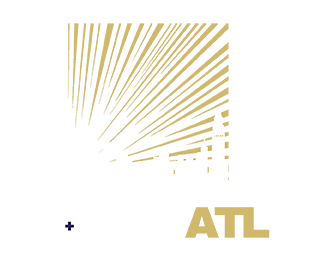Car accidents are prevalent in the U.S. – it records the most road crash deaths,…

In the aftermath of a car accident, dealing with insurance claims and rental car arrangements can be overwhelming. Attorney Anthony Fitzpatrick, a distinguished car accident attorney in Atlanta, sheds light on the rental car process after an accident.
So, whether you're a victim seeking compensation or simply seeking guidance, this comprehensive article will equip you with the knowledge to navigate the essentials of a vehicle rental after an auto collision.
Understanding Rental Car Coverage After an Accident in Georgia
This section provides insights into determining fault in the car accident and answers the question of whether the insurance company bears the responsibility of covering rented vehicle expenses.
Determining Fault In The Car Accident
Determining fault is a critical step after a car accident. Factors such as traffic laws, police reports, eyewitness testimony, and physical evidence play a crucial role in assessing fault and liability. Georgia follows an at-fault system, where the responsible party is typically responsible for covering damages and injuries due to their negligent actions.
Understanding the at-fault system in Georgia is vital for navigating insurance claims and ensuring that appropriate compensation is received. A skilled auto accident attorney can help you understand this process and what you will need to do after a car accident in Georgia.
Whose Insurance Company Pays For The Rental Car After Accident?
In Georgia, the individual deemed responsible for the accident is obligated to cover the expenses of a rental vehicle. In cases where you are not at fault, the other driver's insurance policy should cover the costs.
However, obtaining rental car coverage from the at-fault driver's insurance company can sometimes be challenging, as certain insurers may only provide coverage once liability is established in court, leaving you to bear the burden of paying for a rental car on your own.
If you have insurance coverage, your own policy may include provisions for rental car reimbursement following an accident, which can be a convenient and swift solution. In such cases, your insurance company will then seek reimbursement from the insurance company of the at-fault driver.
However, if you do not have rental coverage as part of your policy, you may need to personally bear the expenses for the rental car. This can be particularly burdensome, especially when dealing with medical bills, other expenses, and potential loss of income following the accident.
While it may not be ideal, relying on personal funds might be the only available option until liability is established for the accident or if the responsible party is uninsured.
It is important to recognize that insurance policies can vary, and the specific terms and conditions outlined in your policy will determine the extent of coverage for rental cars. It is recommended to carefully review your insurance policy or consult with your insurance provider to fully comprehend the details of your coverage.

Getting a Rental Car After an Accident
After a car accident, renting a car becomes essential to ensuring your mobility while your vehicle is being repaired or replaced. Here, you'll be equipped with the necessary knowledge to navigate the rental car process smoothly and minimize any disruptions to your daily life.
When Should I Get a Rental Car After an Accident?
Resolving liability disputes can be a time-consuming process. However, you might require a rental car immediately rather than waiting for months until fault is determined.
In such cases, it's advisable to consider two options: either (a) seek assistance from your own insurance company or (b) personally cover the rental expenses and later request reimbursement once the insurance company of the responsible party accepts liability.
If you are not at fault, it is your right to receive reimbursement for any out-of-pocket expenses incurred, including rental costs, following an accident.
How Do I Get a Rental Car After an Accident?
Renting a car after an accident involves a series of steps and considerations to ensure a seamless process.
Here's a guide on how to obtain your vehicle rental:
- Contact the police and file a report to document the accident for insurance and legal purposes. A police report will aid in establishing liability and seeking compensation from the at-fault driver's insurance policy.
- Collect necessary information from the other driver, including their name, contact details, and insurance information.
- Capture photographs of the damage to both vehicles, as these will be valuable when filing an insurance claim.
- Get in touch with your insurance company and initiate the insurance claim process. They will provide you with a list of preferred rental car companies to choose from.
- Choose a rental car business. Once you have approval from the insurance company, you can select a car rental provider that suits your needs. Consider factors such as the proximity of their location, the availability of the type of vehicle you require, and any additional services they offer, such as pickup and drop-off services.
- Keep a record of all expenses associated with the rental car so that you can be reimbursed by your insurance company.
- Rent a comparable vehicle to ensure coverage under most policies. It's important to note that renting a different type of car, such as a luxury vehicle, may not be eligible for reimbursement.
- Once your car is repaired, return the rental car. Insurance companies typically do not cover rental car expenses beyond the repair period.
Remember to keep all relevant documents, such as the rental agreement, receipts, and communication with the insurance company, for future reference. By following these steps, you can navigate the process of getting a rental car after an accident efficiently and minimize any potential complications.
Will My Insurance Company Pay For My Rental Car?
The coverage for rental car expenses after an accident can vary depending on your insurance policy. To determine whether your insurance provider will pay for your rental vehicle, do the following:
- Review your insurance policy: Carefully review your insurance policy or contact your insurance provider to understand the coverage it offers. Look for specific provisions related to rental car reimbursement or coverage limits. Some policies may include reimbursement for car rentals as part of comprehensive or collision coverage, while others may offer it as an optional add-on.
- Determine liability and coverage limits: If you were not at fault for the accident, the at-fault driver's insurance company is typically responsible for covering the rented car expenses. However, there may be coverage limits and restrictions outlined in their policy. If you were at fault or the responsible party is uninsured, your own insurance policy may come into play. Determine the liability and coverage limits under your policy, including any deductible amounts that may apply.
- Check your car rental insurance: While your insurance policy may cover rental car expenses, it's important to check if there are any limitations or exclusions. Rental car insurance can provide added protection and peace of mind during the rental period, particularly if your policy doesn't fully cover the costs or if you want to avoid filing claims with your own insurance provider.
- Evaluate your needs: Assess your specific needs and circumstances. Consider factors such as the duration of the rental, the type of vehicle you require, and the availability of alternative transportation options. This can help you make an informed decision on whether to opt for rental car insurance or rely solely on your existing coverage.
Remember, each insurance policy is unique, so it's essential to review your own policy and consult with your insurance provider to understand the extent of coverage for rental cars and any associated costs.
Will the At-Fault Driver Reimburse My Insurance Company
In general, if your insurance company pays for your rental auto expenses and you were not at fault for the accident, they may seek reimbursement from the at-fault driver's insurance company. This process is known as subrogation. Your insurance company, acting on your behalf, can pursue the at-fault driver's insurance company to recover the costs they incurred for providing you with a rental car.
However, it's important to note that the specifics of subrogation can vary based on insurance policies and local regulations. Some insurance policies may have provisions that allow your insurance company to seek reimbursement directly, while others may require you to initiate the process and then reimburse your insurance company once they have recovered the costs.
What Type of Rental Car Can I Get?
The type of rental you can get depends on availability, insurance coverage, and personal needs. Rental companies offer various vehicle options, such as sedans, SUVs, and minivans. Check your insurance policy for any restrictions on the size or cost of the car you're renting.
By considering availability, rental coverage provided by insurance, and personal needs, you can select a rental car that aligns with your requirements and ensures a comfortable and convenient means of transportation when your vehicle is being repaired or replaced.
Do I Need To Use a Rental Car Company Approved by The Insurance Company?
Whether you need to use a car rental company approved by your insurance provider depends on the terms of your insurance policy. Some insurance companies may have a preferred list of rental car providers that they work with, while others may give you the flexibility to choose any reputable one you'd like.
Here are some considerations regarding the use of an approved rental company:
- Review your insurance policy or contact your insurance provider to understand any specific requirements or recommendations they have regarding rental car companies.Some policies may require you to use a rental company from their approved list to ensure coverage and streamline the reimbursement process. This is often done to establish pre-negotiated rates and streamline the billing and claims process between the rental car business and the insurance company.
- Using an approved rental company can provide certain benefits, such as direct billing between the rental business and the insurance company. It may also ensure that the rates for your auto rental are within the allowable limits specified by your insurance policy. Additionally, approved auto rental companies may have established protocols for handling insurance claims and providing necessary documentation.
However, if your insurance policy does not require or recommend using an approved rental car business, you may have the freedom to choose any reputable rental car business that meets your needs. In such cases, it's important to ensure that the rental car place you select has a good reputation, offers reliable vehicles, and provides appropriate insurance coverage for the rental car.
Do I Need To Pay For Additional Insurance For The Rental Car?
Determining whether you need to pay for additional insurance for the car you rented depends on several factors, including your existing insurance coverage and the terms of the rental car company.
That being said, if you already have primary car insurance, it is unlikely that you will need to spend extra money on insurance at the rental car counter. Primary car insurance policies typically include coverage for rental cars, and you may also have coverage through a credit card. To be certain, it is recommended to contact your personal car insurance company and inquire about your coverage.
In the event that you need to pay anything additional for your car rental, do the following:
- Review your existing insurance coverage: Start by reviewing your auto insurance policy to understand the extent of coverage it provides for rental cars. In many cases, your existing policy may extend coverage to rental cars, at least for liability and collision damages. However, it's important to check if there are any limitations, deductibles, or coverage gaps that you should be aware of.
- Check with the rental car business: These businesses typically offer additional insurance coverage options at the time of rental. These options may include Collision Damage Waiver (CDW), Loss Damage Waiver (LDW), Personal Accident Insurance (PAI), or Supplemental Liability Insurance (SLI). While these coverages can provide additional protection, they come at an extra cost. Consider the terms and costs associated with the rental car company's insurance offerings and evaluate whether they align with your needs and provide sufficient coverage beyond your existing insurance policy.
How Long Can I Keep The Rental Car?
This mostly depends on if you or the other party are at fault.
If you are at fault:
The duration for which you can keep the car you rented after an accident depends on various factors, including the extent of repairs needed for your vehicle and the terms of your rental car agreement. Here are some key considerations regarding the duration of rental car usage:
- Vehicle repair timeline: The primary factor determining the auto rental duration is the estimated time required to repair your vehicle. Your insurance company or the repair shop can provide you with an estimate for the repair duration. In some cases, it may take a few days to complete minor repairs, while more significant damage may require several weeks. Communicate with the repair shop and your insurance provider to get a clear understanding of the repair timeline.
- Rental car agreement: The terms of your rental car agreement specify the rental duration and any associated fees. Generally, these agreements are based on a daily or weekly rental period. Ensure that you review the agreement and understand the rental duration allowed without incurring additional charges.If your vehicle repairs take longer than initially estimated, you may need to contact the rental car business to request an extension of the rental period or explore other options.
- Communication with the insurance company: Stay in touch with your insurance provider throughout the repair process. Inform them if the repair timeline changes or if additional time with the car rental is needed.
If the other party is at fault:
Unlike your personal coverage, there is no specific duration set for the at-fault driver's insurance company to cover the cost of your rental car during the repair period of your vehicle. You have the right to use the rental car for the entire duration it takes to repair your vehicle.
What Happens When the Insurance Company Refuses to Pay for a Rental Car?
In certain instances, insurance companies may deny coverage for specific costs, such as car rentals, even after liability has been determined. In such cases, you have the option to file a complaint with the Georgia Department of Insurance.
The Consumer Services division of the Georgia Department of Insurance is responsible for ensuring that insurance companies comply with state insurance regulations, making it a valuable resource if you suspect an insurance company is acting in bad faith. It is recommended to initiate the process by contacting this division.
It's also a good idea to contact a top-notch Atlanta car accident attorney if the insurance claim is denied or you are dissatisfied with the settlement the insurance agency is offering. Your attorney will delve into the specifics of your case, and work diligently to get you the case results you deserve, including reimbursement for your car rental fees.

Tips for Dealing With Insurance Companies and Rental Car Companies
Dealing with insurance companies and auto rental companies after an accident can sometimes be challenging. Here are some helpful tips to navigate these interactions more effectively:
- Understand your rights and coverage: Familiarize yourself with the terms and coverage of your insurance policy. This includes knowing the types of coverage you have, any deductibles, limitations, and the process for filing a claim. By understanding your rights and coverage, you can better advocate for yourself during discussions with insurance companies and rental car companies.
- Document all communication: Keep a record of all communication with insurance companies and rental car companies. This includes emails, phone calls, and written correspondence. Take note of the date, time, and the name of the person you spoke with, as well as a summary of the conversation. This documentation can be valuable in case of any disputes or discrepancies that may arise later.
- Communicate clearly and assertively: When communicating with insurance companies and rental car companies, be clear, concise, and assertive. Clearly explain the details of the accident, provide accurate information, and ask questions if you need clarification. Stay calm and composed during conversations, and assertively express your concerns or requests. Remember to remain professional and courteous throughout the process.
- Follow the proper claims process: Familiarize yourself with the claims process of your insurance company and follow the required steps to file a claim. Provide all necessary documentation, such as police reports, photographs, and medical records, to support your claim. Be prompt in submitting any requested information or forms to avoid delays in processing your claim.
- Review rental car agreements thoroughly: Before signing an agreement for the car you are renting, carefully review all terms and conditions. Pay attention to any additional fees, mileage limits, fuel requirements, and insurance options offered by the rental car company. Understand the consequences of any potential violations or damages that may incur extra charges.
- Advocate for fair treatment: If you encounter any issues or feel that you are not being treated fairly by insurance companies or rental car companies, don't hesitate to advocate for yourself. Contact your insurance agent or adjuster to address any concerns or escalate the matter if necessary. Similarly, if you face difficulties with a rental car business, speak to a manager or contact their customer service department to seek a resolution.
By following these tips, you can navigate the process of dealing with insurance companies and rental car companies more effectively. Remember to stay informed, document all interactions, and assertively communicate your needs and concerns to ensure a smoother experience during the post-accident period.
Final Thoughts
Contending with renting a car after an accident can be a complex process, but with the right knowledge and understanding, you can navigate through it more effectively. Here are some key takeaways:
- Understanding Rental Car Coverage After an Accident in Georgia: Determining fault in the accident is crucial, as it determines who is responsible for covering rented car expenses. Georgia follows an at-fault system, where the responsible party is typically responsible for covering the damages and injuries incurred by the other party.
- Whose Insurance Company Pays for the Rental Car After an Accident? If you were not at fault, the at-fault driver's insurance company is generally responsible for paying for the auto rental. However, if you were at fault or the responsible party is uninsured, you may need to rely on your own insurance coverage to pay for the auto you rented.
- Getting a Rental Car After an Accident: The right time to get a car rental depends on the extent of damage to your vehicle, estimated repair time, and your personal transportation needs. It's important to communicate with your insurance company and understand the rental car coverage provided by your policy. Remember,
- How to Get a Rental Car After an Accident: Contact your insurance company or the at-fault party's insurance provider to discuss arrangements for your rental. Choose a rental car business that suits your needs, understand the rental terms and requirements, and keep accurate records of all communication.
- Will My Insurance Company Pay for My Rental Car? The coverage for rental car expenses varies depending on your insurance policy. Review your policy, determine liability and coverage limits, and consider rental car reimbursement coverage if applicable.
- What Type of Rental Vehicle Can I Get? The type of rental you can get depends on availability, insurance coverage, and your specific needs. Consider factors such as vehicle size, insurance restrictions, and personal preferences when selecting the best car to rent.
- Do I Need to Use a Rental Car Company Approved by the Insurance Company? Whether you need to use an approved rental car company depends on the terms of your insurance policy. Some policies may require using an approved provider, while others give you more flexibility. Review your policy and consult with your insurance provider for guidance.
- Do I Need to Pay for Additional Insurance for Renting the car? Check your existing insurance coverage and evaluate the rental car company's insurance offerings. Purchasing additional insurance from the rental car company is not mandatory, but consider the potential risks and benefits before making a decision.
- How Long Can I Keep the Rental? The duration of rental car usage depends on the estimated repair time for your vehicle and the terms of the agreement for your car rental. Communicate with the repair shop, insurance company, and rental car company to ensure you have the rental for the necessary duration without incurring additional charges.
By understanding these tips and taking the necessary steps, you can navigate the rental car process after an accident more effectively and ensure you receive the support and coverage you need. Remember to keep detailed records, stay in communication with all parties involved, and seek legal advice if necessary.
If You Need Help Navigating The Process After An Accident, Contact The Car Accident Lawyers At The Fitzpatrick Firm
After an accident, the process of receiving rental car compensation can be complicated and time-consuming. If you're having trouble navigating the insurance claims process or understanding your rights and coverage options, it may be time to seek legal advice from a qualified attorney.
At The Fitzpatrick Firm, experienced car accident attorney Nathan Fitzpatrick and his legal team are here to guide you through the process and ensure you receive the compensation and support you deserve. Our law firm understands this can be a difficult time, so let us take care of the legal work while you focus on healing and recovery. Contact us today at (678) 607-5550 or fill out the form below to learn more about our services and how we can help you get back on the road.


